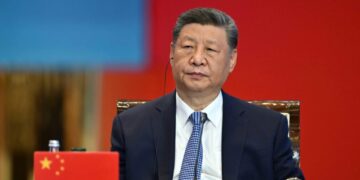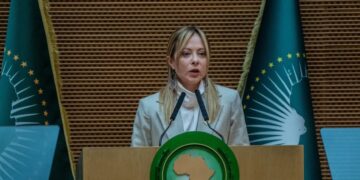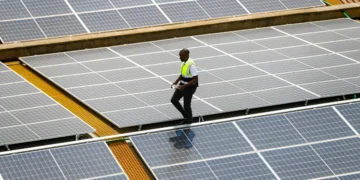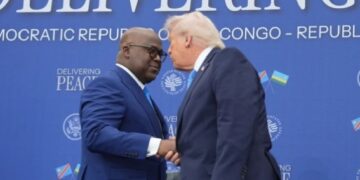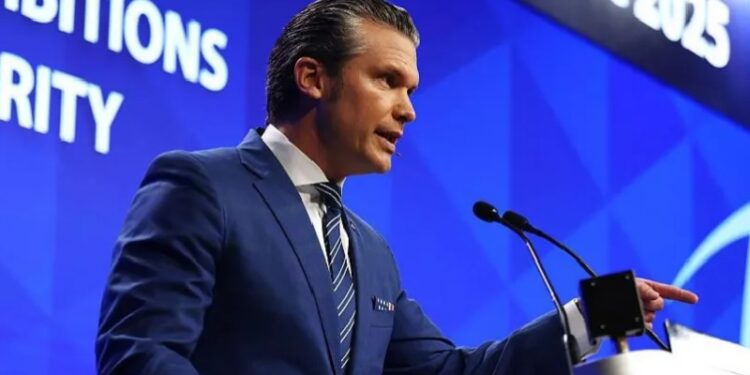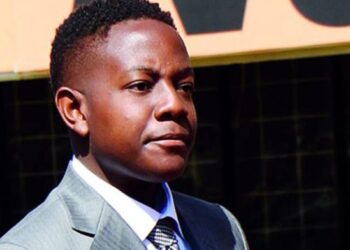By Enyichukwu Enemanna
US Secretary of Defence Pete Hegseth has raised concern that China is posing an “imminent” threat to Taiwan, urging Asian countries to boost defence spending and work with the US to deter war.
While the US does not “seek to dominate or strangle China”, it would not be pushed out of Asia nor allow its allies to be intimidated, Hegseth said while speaking at the Shangri-La Dialogue in Singapore on Saturday.
Taiwan has its own constitution and holds regular, multiparty elections to choose its own leaders.
But China insists that Taiwan is part of its territory and has threatened to use force if necessary to bring the island under its control.
Addressing the high-level Asian defence summit, Hegseth characterised China as seeking to become a “hegemonic power” that “hopes to dominate and control too many parts” of Asia.
He said Beijing was “credibly preparing to potentially use military force to alter the balance of power” in Asia, and referred to a 2027 deadline that President Xi Jinping has allegedly given for China’s military to be capable of invading Taiwan.
China “is building the military needed to do it, training for it, every day and rehearsing for the real deal”, Hegseth said.
“Let me be clear: any attempt by Communist China to conquer Taiwan by force would result in devastating consequences for the Indo-Pacific and the world. There’s no reason to sugarcoat it. The threat China poses is real. And it could be imminent. We hope not, but it certainly could be.”
The US does not seek war or conflict with China, Hegseth added.
“We do not seek to dominate or strangle China, to encircle or provoke. We do not seek regime change… but we must ensure that China cannot dominate us or our allies and partners,” he said, adding, “we will not be pushed out of this critical region”.
Chinese fighter jets have been intruding in Taiwan’s airspace in what has been termed as grey-zone tactics.
In response, China accused the US of being the “biggest troublemaker” for regional peace.
The Chinese embassy in Singapore posted a note on its Facebook page saying the speech was “steeped in provocations and instigation” and said Hegseth had “repeatedly smeared and attacked China and relentlessly played up the so-called ‘China threat'”.
“As a matter of fact, the US itself is the biggest ‘troublemaker’ for regional peace and stability,” it added. Examples it cited included the US “deploying offensive weapons” in the South China Sea and conducting reconnaissance of what the embassy called “Chinese islands and reefs”.
“What the US now offers the most to the world is ‘uncertainty’,” the embassy said. “The country claims to safeguard peace and not to seek conflicts. We’ve heard it. Let’s see what moves will it take.”
The Shangri-La Dialogue has traditionally served as a platform for the US and China to make their pitches to Asian countries as the superpowers jostle for influence.
But while this year the US has sent one of its largest delegations ever, China instead sent a notably lower-level team and scrapped its planned speech on Sunday. No explanation has been given for this.
US President Donald Trump has demanded members of the Western alliance NATO spend more on defence, at least 5% of their GDPs – an approach Hegseth called “tough love, but love nonetheless”.
Some countries, including Estonia, have moved quickly to do so, while others, such as Germany, have signalled an openness to comply.



















